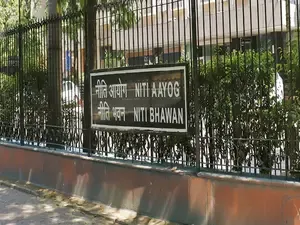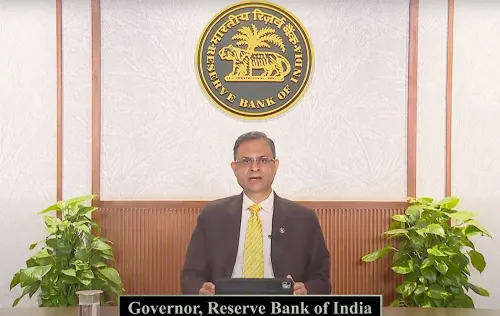Quantum Computing Set to Transform National Security Approaches: NITI Aayog

Synopsis
Key Takeaways
- NITI Aayog's report highlights the importance of quantum technology for national security.
- Quantum computing can disrupt existing encryption and enhance weaponry.
- Global investment in quantum tech: US ($5B), China ($15B), Europe ($1.2B), India ($0.75B).
- China integrates quantum advancements into military frameworks.
- India must enhance its quantum capabilities through partnerships.
New Delhi, March 5 (NationPress) NITI Aayog unveiled a comprehensive report on the implications of quantum computing for national security, highlighting that quantum technology represents not only a scientific advancement but also a contest for future global dominance.
This technology has the capacity to affect defense, intelligence, economic security, and the overall resilience of nations.
The findings indicate that quantum computing is poised to enact significant transformations in security strategies, ranging from breaking encryption systems to creating sophisticated weaponry, as stated by NITI Aayog.
Countries that excel in developing quantum technology will gain a crucial strategic edge.
The report outlines worldwide investments in quantum computing, with the United States allocating $5 billion and China leading with $15 billion.
Europe has set aside $1.2 billion, while India has invested $0.75 billion in this field thus far.
The US quantum ecosystem benefits from substantial governmental funding and involvement from the private sector, with leading tech firms like Google and IBM at the forefront.
Conversely, China has made extensive investments in quantum research, integrating these technologies within its military and intelligence frameworks.
NITI Aayog has proposed various measures to enhance India's standing in quantum technology.
The report advocates for the formation of a dedicated task force to keep track of global advancements, evaluate threats to critical national systems, and establish guidelines for crypto agility so that industries can swiftly adapt to new encryption techniques.
Additionally, it recommends that India establish collaborations with other nations to expedite the integration of quantum technologies.
Furthermore, the government announced last year that it would reveal the startups selected for support under the newly initiated guidelines as part of the National Quantum Mission.
The chosen startups, which are leading innovations in areas such as quantum communication, computing, sensing, and materials, were selected through a rigorous evaluation process.
As per the Science and Technology Ministry, these groundbreaking enterprises are expected to play a pivotal role in fortifying India's quantum ecosystem by addressing critical technological challenges and enhancing economic growth.









